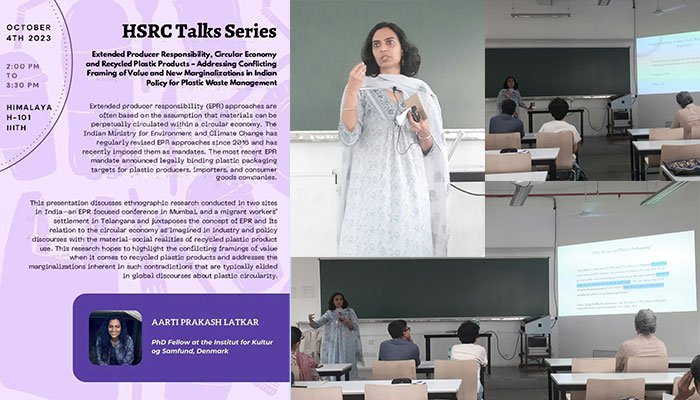Aarti Latkar, a doctoral researcher at the School for Culture and Society at Aarhus University gave a talk on Extended Producer Responsibility, Circular Economy, and Recycled Plastic Products – Addressing Conflicting Framing of Value and New Marginalizations in Indian Policy for Plastic Waste Management on 4 October as part of the HSRC Monsoon Talk series. Her work explores materialities, socialites and politics of plastics in Indian towns using ethnographic methods. She spoke about how extended producer responsibility (EPR) approaches are often based on the assumption that materials can be perpetually circulated within a circular economy.
The Indian Ministry for Environment and Climate Change first introduced EPR approaches for plastic waste management in 2016. EPR approaches have been regularly revised since and have recently been imposed as mandates. The most recent EPR mandate announced legally binding plastic packaging targets for plastic producers, importers, and consumer goods companies.
In her presentation, Aarti discussed the ethnographic research she conducted in two sites in India: an EPR-focused conference in Mumbai and a migrant workers’ settlement in Telangana. The study found that informal small-scale plastic recyclers tend to be marginalised because of the ways ‘extended producer responsibility’, ‘circular economy’ and ‘recycling’ are framed in the policy and interpreted by industry.
The talk raised questions about ‘what is valued’ within the framings of a circular economy for plastics in local and other contexts including current global plastics treaty negotiations. Other questions raised in the presentation and the question-answer session that followed included the safety concerns that may arise with allowing recycled materials to be used to package food, and how recycling targets and rewards may affect the manufacture and consumption of plastic.
October 2023

